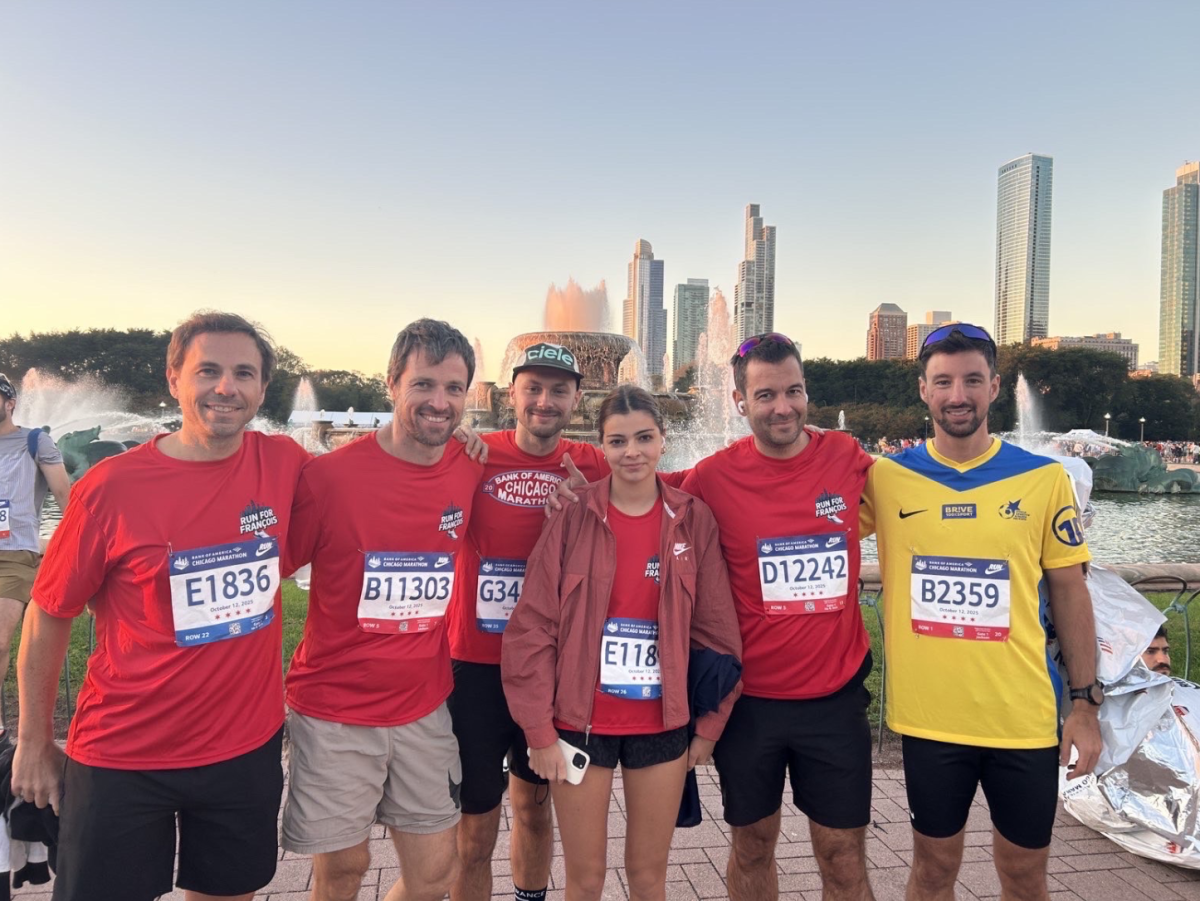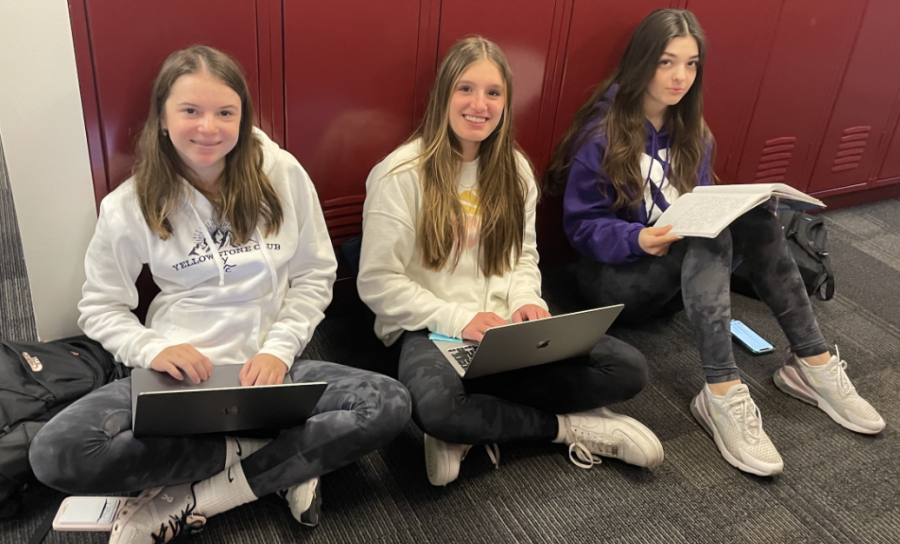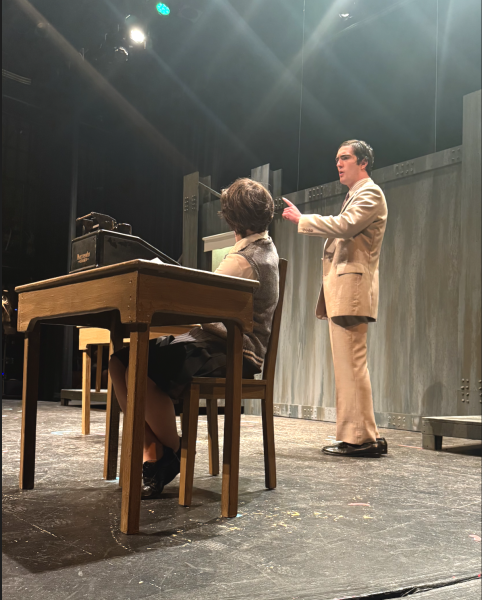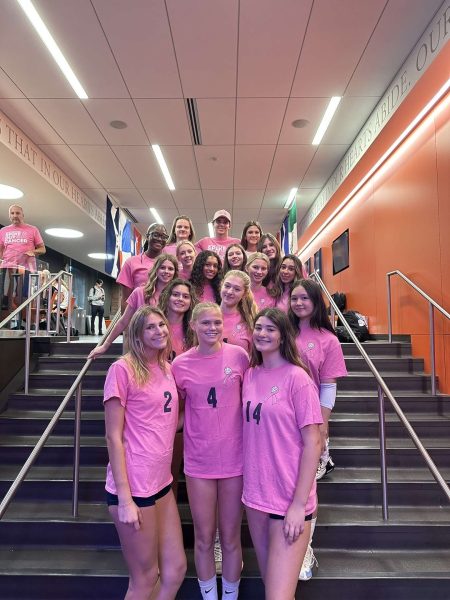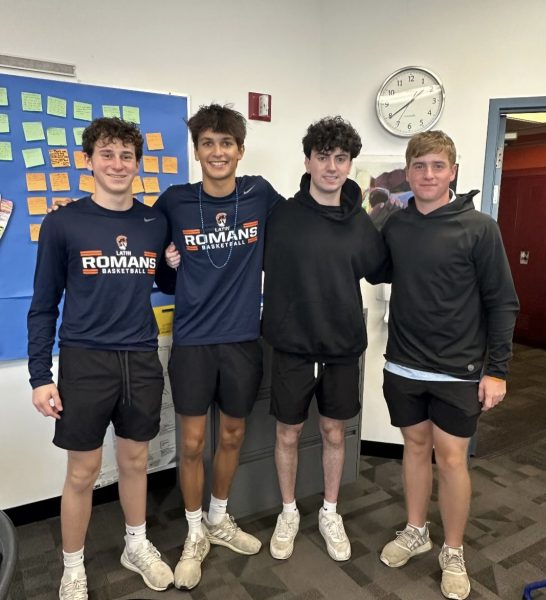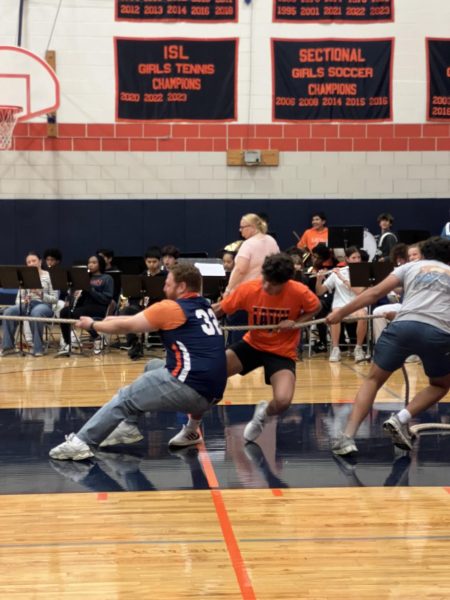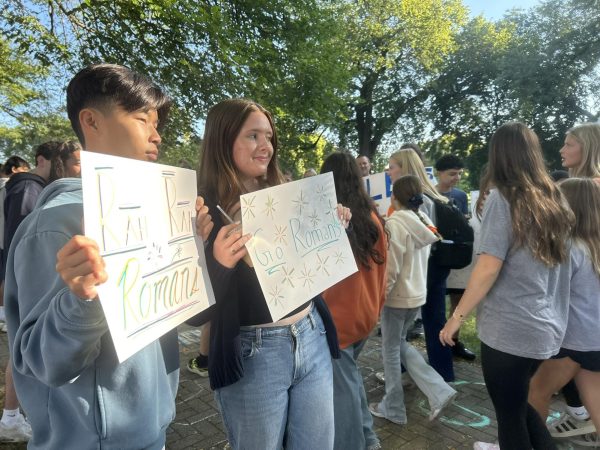To Mask or Not To Mask
Freshmen Elle Hodes, Elena Tognarelli, and Darina Koedjikova study unmasked in the fourth floor locker bay.
Masks are progressively losing their popularity and necessity in the Latin community due to the low count of COVID cases. Still, masks have several advantages outside of protecting one from COVID.
Every Friday, Latin’s Middle School and Upper School nurses provide weekly community updates on the number of active COVID cases in the school. They report the combined number of student, faculty, and staff cases for each division. There were no COVID cases in the Lower School, four Middle School cases, and three Upper School cases as of February 17. Fewer staff members and students choose to wear masks now due to the decline in COVID cases in the Latin community and in Chicago.
Middle School and Upper School Nurses Erin Crowley and Justine Venegoni, in an emailed response to The Forum, said, “It’s hard to gauge what percentage of the Latin population are wearing masks, as it likely changes from day to day.”
They also highlighted that the main groups of people wearing masks are the ones who “were exposed to COVID-19, who recently traveled, and who are displaying signs or symptoms of illness, in an effort to keep the rest of the Latin community healthy.” They said another reason for mask-wearing might be “personal protection and/or to keep those around them safe.” They added, “While masks are not required at this time, they are certainly welcomed and appreciated.”
Freshman Allegra Cerda has worn a KN95 mask on and off throughout the start of the pandemic until now. “Usually I will wear [a mask] for a couple weeks when I feel like COVID is spreading more, to protect myself, my family, and my friends in case I am sick or other people are sick,” Allegra said. “It just makes me feel safer.”
Senior Sanaiya Luthar wears a mask to school every day, and she offered a variety of explanations for her choice. “Personally [wearing a mask] is the way I feel comfortable in an environment like school,” Sanaiya said. “I do have an immunocompromised person in my immediate family, and I do partly wear a mask to protect them. The pandemic is still out there, and people are still getting sick, and I do not want to be the person to bring that sickness back to my family.” She added, “There is a little bit of germaphobia that plays into my decision to wear a mask.”
Latin adheres to the Centers for Disease Control and Prevention (CDC) guidelines when it comes to establishing COVID protocols, so the school does not currently require masking.
While masks are still being used as protection from COVID, there are also many other benefits to wearing masks that actually do not involve the recent pandemic at all. Nurse Crowley and Nurse Venegoni said, “COVID, influenza, and RSV are all highly contagious respiratory infections caused by viruses.” In some regions of the United States, the number of cases of Respiratory Syncytial Virus (RSV), a common respiratory virus that can be deadly in children, immunocompromised individuals, and elderly adults, “ticked upwards in some places in the U.S. last year,” according to Yale Medicine.
Influenza, another respiratory illness that is similar to both COVID and RSV, is highly contagious and tends to hit the Latin community hardest toward the end of fall and the beginning of winter. According to emergency medicine specialist Dr. Karen Jubanyik, who was quoted in Yale’s article, adults should consider wearing masks during influenza season if they are “at risk for or interact with people who are vulnerable to complications from the flu.”
Freshman Daisy Krueger said, “The reason why people wear masks to school is to protect themselves and protect others from getting sick.” While masks do indeed protect others, many have chosen to stop wearing them since the chance of getting sick or spreading illnesses has decreased.
Essentially, whether a person wears a mask is a matter of personal preference. Since many are so familiar with masks and their advantages, some people may consider wearing them to protect themselves from other dangerous respiratory illnesses now that the COVID pandemic has started to diminish.
Yale Medicine infectious disease specialist Dr. Sheela Shenoi has said, “Now that we’ve lived through this, I think masks are much more familiar to us. We know how easy it is—how straightforward it is—to wear a mask. We’ve learned that this is doable.”


















